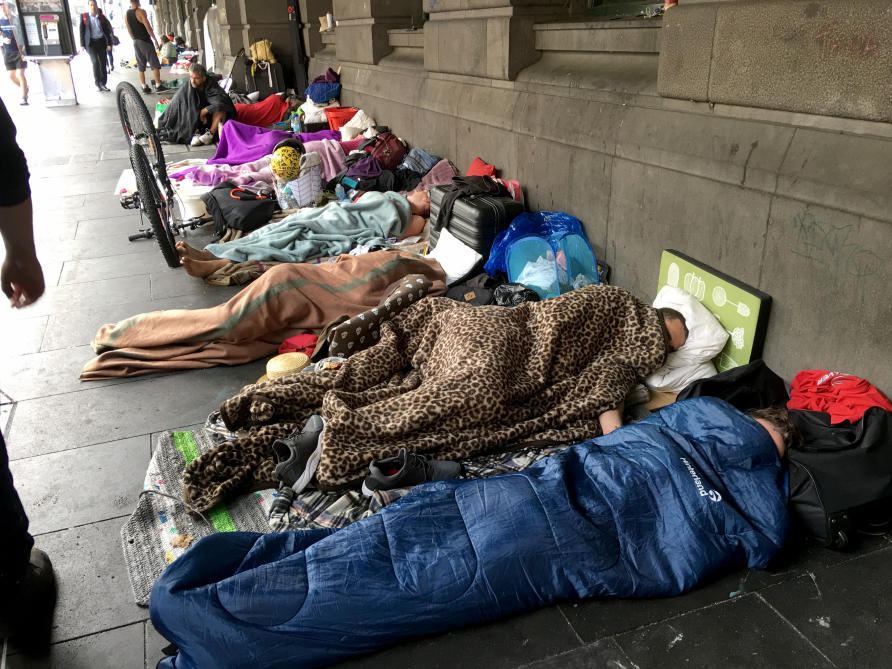by BINOY KAMPMARK
 “Under a proposal from Melbourne’s Lord Mayor, rough sleepers like these people at Flinders St Station would be banned.” PHOTO/Paul Burston/The University of Melbourne
“Under a proposal from Melbourne’s Lord Mayor, rough sleepers like these people at Flinders St Station would be banned.” PHOTO/Paul Burston/The University of Melbourne
An aggressive sign of an affluent society can usually be gauged by its invidious misuse of its privilege. Poverty is deemed necessary, and the rich must try to understand it. To be privileged is to be guilty, a tickling of the conscience as the pennies pile up and the assets grow; and from that premise, efforts must be made to give shape to the forgotten, and, in most cases, the invisible.
To be guilty is a spur for works that supposedly highlight those nagging reasons for feeling guilty. You might supply donations. You can become a philanthropist. You can join a charity. Obscenely, you can become a creature of mocking persuasion, a person of pantomime: you can assume the position of a poor person, a homeless person, and pretend to be him. And let it be filmed.
“When I was given the opportunity to spend 10 days experiencing different forms of homelessness for an SBS documentary, I jumped at the chance to understand more about a crisis that now sees more than 116,000 Australians homeless on any given night.” So go the words of veteran thespian Cameron Daddo, a person who never explains how understanding Sydney’s poverty leads to results, other than spending time on the screen and proving rather awkward to boot.
The individuals involved in the tawdry Australian spectacle Filthy Rich & Homeless have various reasons for participating. They have a chance, not merely to appear before the cameras, but to explore another part of Sydney. What matters for Skye Leckie is the anger of authenticity. Socialite that she is, she does not believe that her participation in the venture is “poverty porn” despite being the very same creature who benefits from having a good quotient of poor around. “Those who say it’s stunt TV are being totally ignorant to the homeless situation out there.” This is a delicious way of self-justification, a positioned blow to excuse how her exploitation of a social condition is entirely justified by a mysterious, holy insight. Her pantomime, in other words, is heralded as genuine.
Benjamin Law, author and very much an identity beacon (those things help these days), played the cool cat. In such ensembles, it’s always good to have the confidently composed, the person who won’t fall for the pathos of the show. “I went to Filthy Rich and Homeless being adamant that it was only 10 days, and that I wasn’t going to cry – I felt it’d almost be insulting to people who were actually homeless.” So goes his justification for actually participating in the project: he would hold firm, stay calm, keep his tear ducts dry. “But when it’s demonstrated that this could easily be a family member, and someone you love, I couldn’t not be affected.”
Scoop for more
